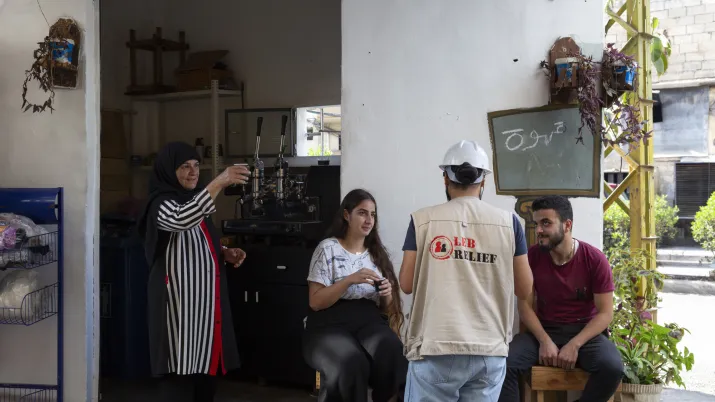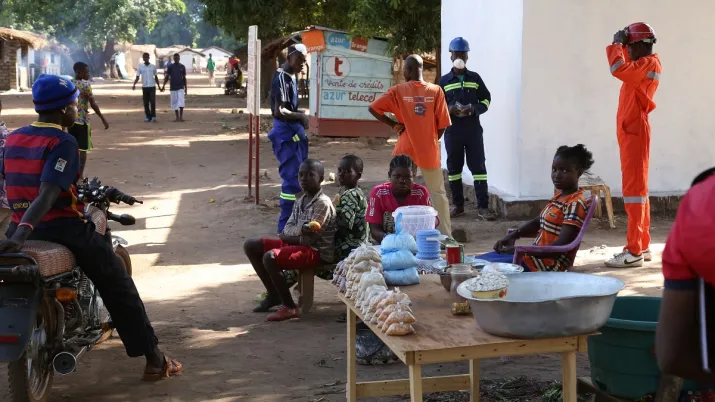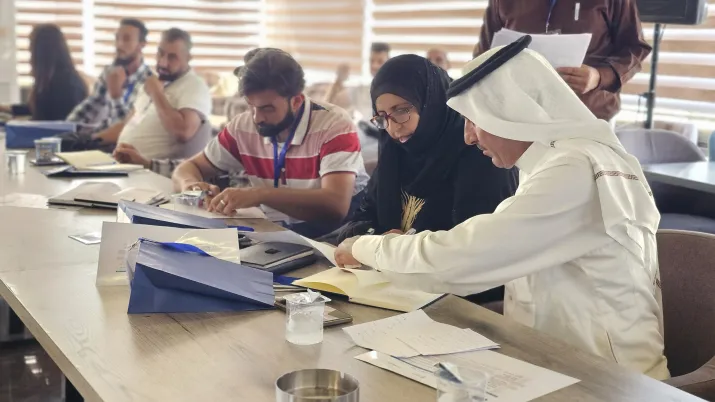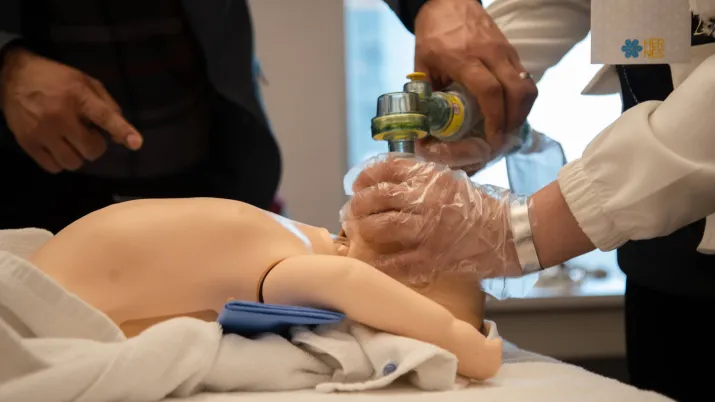Share the page
HERNES - Health Recovery in North-East Syria
Project
Published on
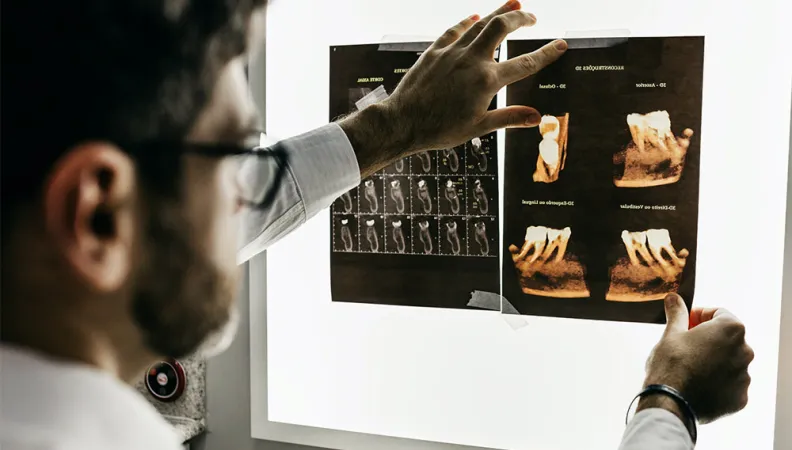
-
Project start date
-
Status
Ongoing
-
Project end date
-
-
Financing amount (Euro)
-
16.7m
-
Country and region
-
Syria, Middle East
The HERNES programme contributes to socio-economic recovery in North-East Syria (NES) by improving populations' access to healthcare.
Syria affected by conflicts
From 2013 to 2017, the north-eastern part of Syria has largely been captured by ISIS before being progressively retaken by the Syrian Democratic Forces. The high level of destruction caused by the anti-IS war has significantly affected the economic activity and access to essential services. As a result, communities in the North-East of Syria continue to face the long-term impacts of the intense hostilities and military operations that led to significant loss of life, destruction of essential services and civilian infrastructures, and over one million people being displaced.
In this context, Expertise France launched the HERNES programme (HEalth Recovery in North-East Syria) in 2019, to strengthen stability and resilience of populations affected by the conflict, by improving their access to healthcare.
The programme was co-funded by the French Ministry of Europe and Foreign Affairs and the European Union in its two first phases (2019-2023), and by the French Ministry for Europe and Foreign Affairs for the current third phase (2023-2024).
HERNES: Improving access to essential health services
The HERNES programme seeks to improve the living conditions of the populations through the progressive recovery of essential services and economic activity by supporting health services.
In partnership with Mehad NGO, a major actor in the medical field in the North-East of Syria, the programme unfolded in 9 different locations across all governorates in the region and fell under three areas:
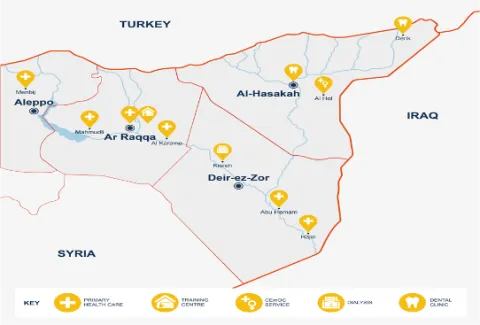
- Access to quality health services: 6 primary and secondary healthcare centers, 1 dialysis centre, 4 mobile clinics and 1 maternity hospital have been rehabilitated and supplied to provide in total an average of 32 000 consultations per month;
- Improvement of health workers capacities: through provision of in-service trainings in supply chain management and reproductive, maternal, newborn and child health (RMNCH)
- Coordination among health actors and harmonization of practices: by leading the RMNCH working group, gathering NES health actors, and harmonizing practices in this sector.
HERNES’s expected results
In order to reach the objectives of the programme, Expertise France mobilizes experts in reproductive, maternal, newborn and child health (RMNCH), dialysis, supply chain and public health to implement activities and support partners.
In its third phase, the programme includes three main expected results. It will improve:
- Skills of health workforce in the field of Reproductive, Maternal, Newborn and Child health (RMNCH), through Training of Trainers, cascade trainings and supportive supervision;
- Coordination among health actors to harmonize practices in RMNCH; through designing clinical guidelines and conducting operational research;
- Access to quality health services in North East Syria through support to a primary health care center and a maternity hospital;
Results of the first phase of the programme (2019-2021)
Discover the videos produced within the first phase of the HERNES project to find out more about its results and impacts.
Results of the second phase of the programme (2021-2023)
Discover the documents produced within the second phase of the HERNES project to find out more about its results and impacts.
Research paper
Third phase of the programme (2023-2024)
Discover the documents produced within the third phase of the HERNES project to find out more about its results and impacts.
Similar Projects
SHABAKE – Building the capacities of Lebanese civil society organisations
Closed
2019 - 2025
Funders : Agence Française de Développement, Ministry of Foreign Affairs of Denmark, Ministry for Europe and Foreign Affairs of France
Pilot Project for the Redeployment of Decentralized Services, Enhancement of Social Cohesion and Early Recover...
Closed
2016 - 2019
Funders : European Union
ENSAAC
Ongoing
2024 - 2025
Funders : European Union, Ministry for Europe and Foreign Affairs of France
In the News
"She is one of us, and in her job, she is leading"
The United Nations "Women, Peace and Security" agenda is being implemented by France as part of a National Action Plan covering the period 2021-2025. This agenda is also implemented at European level....
Published on March 7, 2024



